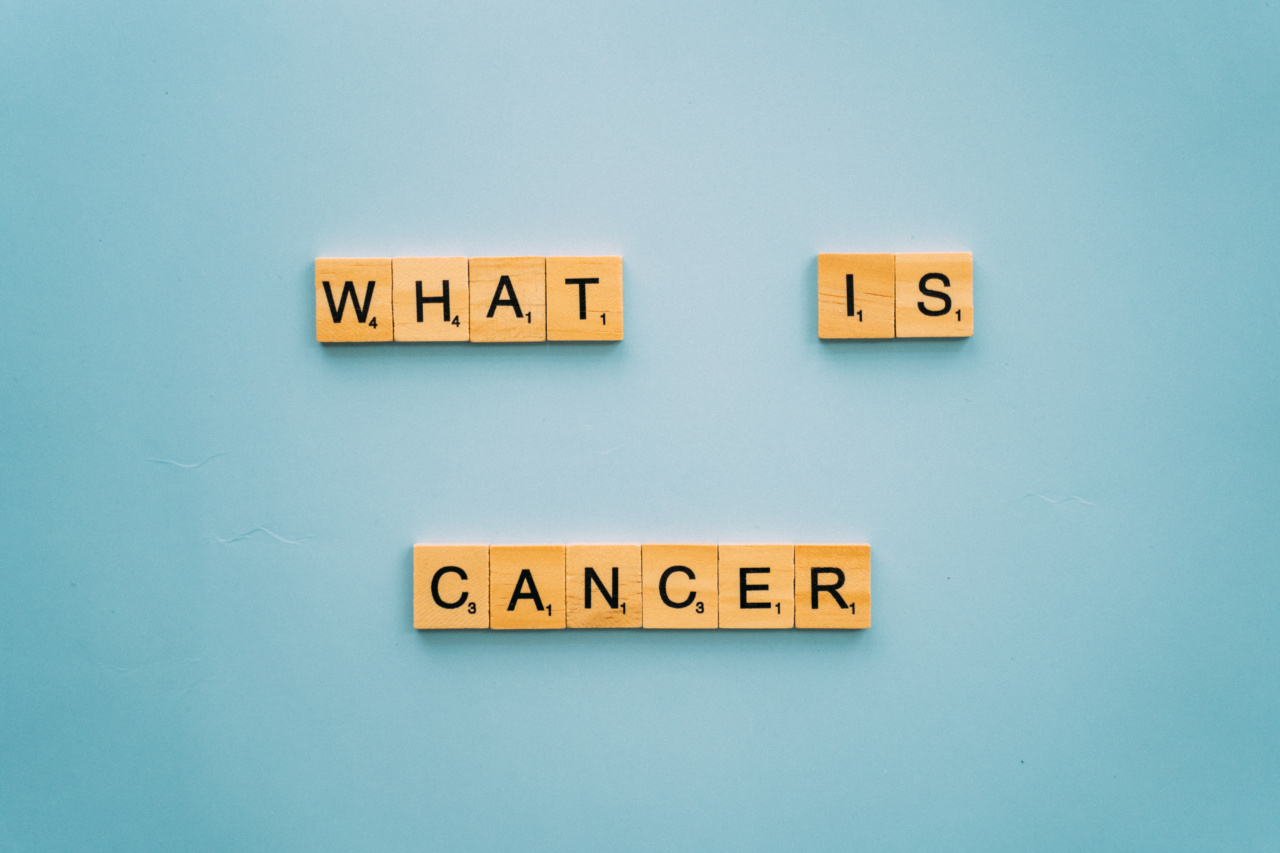Cancer is a devastating disease that has claimed many lives over the years. It is a disease characterized by the uncontrolled growth and spread of abnormal cells. These cells can form tumors or invade other parts of the body.
Cancer is a complex disease, and the more you know about it, the better equipped you are to understand the stages and therapeutic forms of cancer.
What are the Stages of Cancer?
There are different stages of cancer, and each stage is determined by the size of the tumor and how far it has spread. The stages range from Stage 0 to Stage IV.
Understanding the stages of cancer is vital to determine the treatment plan that would be effective. Here are the different stages of cancer:.
Stage 0
This stage is also known as Carcinoma in situ. It is the earliest stage of cancer, where the abnormal cells are present on the top layer of the tissue, and they have not spread to any other part of the body.
This type of cancer is often curable, and treatment is usually less aggressive.
Stage I
This stage is characterized by the growth of the tumor into nearby tissues. The cancerous cells have not yet spread to other parts of the body. Treatment is usually effective, and the chances of remission are higher.
Stage II
Cancer at this stage has grown larger than stage I, and it may have spread to the surrounding lymph nodes. Treatment is necessary and may involve surgery, radiation therapy, or chemotherapy.
Stage III
Cancer at this stage has spread to nearby organs and has invaded the underlying tissues. Treatment is more aggressive, and it often involves a combination of surgery, radiation therapy, and chemotherapy.
Stage IV
Cancer at this stage has spread to other parts of the body, and it is often difficult to cure. Treatment is usually oriented towards palliative care, which is not aimed at curing the cancer but relieving the symptoms.
What are the Therapeutic Forms of Cancer?
Cancer treatment will depend on the stage of the disease, the type of cancer, and the patient’s overall health. Here are the different therapeutic forms of cancer that are available:.
Surgery
Surgery is the most common treatment for cancer, particularly for cancers that are localized, meaning they have not spread to other parts of the body. It involves the removal of the tumor or a part of the tissue affected by cancer.
It is a highly effective treatment for most cancers, and patients can recover completely.
Radiation Therapy
Radiation therapy is used to treat cancer by exposing the cancer cells to high-energy radiation. It can be used alone or in combination with other treatments like surgery or chemotherapy.
Radiation therapy is often used to reduce the size of tumors before they can be removed surgically, for quick relief of pain, and to destroy any remaining cancer cells after surgery.
Chemotherapy
Chemotherapy is a cancer treatment that uses drugs to destroy cancer cells. It can be used alone or in combination with radiation therapy or surgery. Chemotherapy is often administered intravenously or orally.
It can be used to reduce the size of tumors before surgery or to kill any remaining cancer cells after surgery.
Immunotherapy
Immunotherapy is a treatment that uses the body’s immune system to fight cancer. It works by stimulating the immune system, which helps the body recognize and attack cancer cells.
Immunotherapy is used to treat certain types of cancer like liver cancer, lung cancer, melanoma, and cancer of the kidney and bladder.
Hormone Therapy
Hormone therapy is a treatment that is used for hormone-receptor-positive cancers like breast and prostate cancer. Hormone therapy works by blocking the hormones that are fueling the growth of cancer cells. It can be administered orally or via injection.
Targeted Therapy
Targeted therapy is designed to target specific genes or proteins that are involved in the growth and survival of cancer cells.
Unlike chemotherapy, which kills both cancerous and healthy cells, targeted therapy only targets cancer cells, reducing the risk of side effects.
Conclusion
Cancer is a life-threatening disease that requires the right treatment plan. Understanding the different stages and therapeutic forms of cancer is essential in determining the most effective treatment.
The right treatment plan can help increase the chances of remission and improve the quality of life for those living with cancer.
























